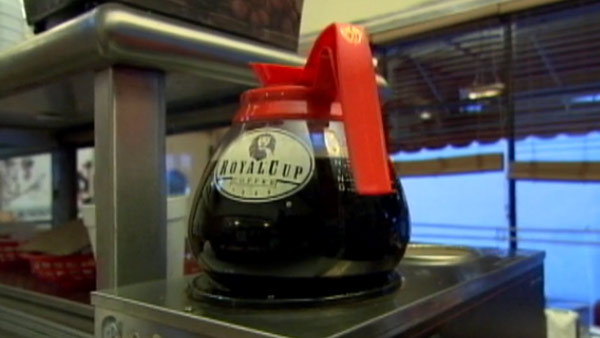-
Tips for becoming a good boxer - November 6, 2020
-
7 expert tips for making your hens night a memorable one - November 6, 2020
-
5 reasons to host your Christmas party on a cruise boat - November 6, 2020
-
What to do when you’re charged with a crime - November 6, 2020
-
Should you get one or multiple dogs? Here’s all you need to know - November 3, 2020
-
A Guide: How to Build Your Very Own Magic Mirror - February 14, 2019
-
Our Top Inspirational Baseball Stars - November 24, 2018
-
Five Tech Tools That Will Help You Turn Your Blog into a Business - November 24, 2018
-
How to Indulge on Vacation without Expanding Your Waist - November 9, 2018
-
5 Strategies for Businesses to Appeal to Today’s Increasingly Mobile-Crazed Customers - November 9, 2018
New Study Links Caffeinated Beverages To Miscarriages
Researchers noted that women who consumed more than two caffeinated beverages during the first seven weeks of pregnancy were also more likely to suffer miscarriage, according to researchers. Women who took a daily multivitamin before and during pregnancy were less likely to have a miscarriage.
Advertisement
In addition to the findings on caffeine consumption, researchers at Ohio State University and the National Institutes of Health found multivitamin use can reduce the chances of miscarriage if taken before conception. Similarly, women who drank more than two daily caffeinated beverages during the first seven weeks of pregnancy were also more likely to miscarry.
That taking multivitamins made such a difference “is something that was very striking”, Louis said, adding that the researchers did not see any association for male partners and vitamin use.
The study was published this week in the journal Fertility and Sterility.
They analyzed data from a 2004-2009 study of fertility and environmental factors, including couples who had recently gone offbirth control in order to try getting pregnant. The researchers measured pregnancy loss based on negative pregnancy sets, onset of menstruation and clinical confirmation of loss of pregnancy.
The results showed that of the 344 pregnancies, 98 ended in miscarriage. The study revealed that women aged 35 or older, who were twice as likely to experience miscarriage compared to younger women, had a hazard ratio of 1.96.
Doctors are warning women not to panic and drop their cup of coffee as the epidemiological studies have not proven cause and effect.
Additionally, both male and female consumption of more than two caffeinated beverages a day has increased the risk of miscarriage.
But, those studies couldn’t rule out whether caffeine consumption contributed to pregnancy loss – or was a sign of an unhealthy pregnancy. It’s possible, the authors wrote, that these earlier findings could have been the result of a healthy pregnancy, rather than caffeine consumption interfering with pregnancy.
Yet, the current study found that caffeine consumption prior to conception was associated with a higher risk of miscarriage.
The findings are important because they give couples who want to conceive more useful information and send the message that “males matter”, too, Louis said.
Previous studies indicated that pregnancy loss is linked to caffeine consumption in early pregnancy.
Advertisement
Taking a multivitamin before pregnancy had a 0.45 hazard risk – a 55 per cent reduction in risk for pregnancy loss. If they continued to take it during early pregnancy, there was an even greater reduction. The study authors explained the reduced risk may come from vitamin B6 and folic acid found in prenatal vitamins. Fortunately, the researchers did mention that multivitamin use before conception could reduce the risk of miscarriage.





























